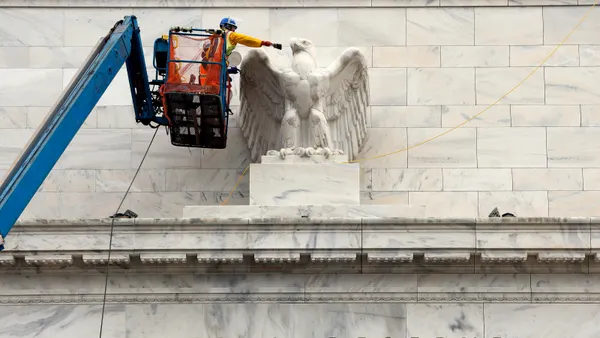The Federal Deposit Insurance Corp. proposed a measure Tuesday that would limit the actions for which examiners could issue warnings to banks or impose penalties on them.
Examiners will be expected to focus on matters that materially affect a bank’s risk of failure, or would impose costs on the Deposit Insurance Fund, instead of “a litany of process-related items that are unrelated to a bank’s current or future financial condition,” FDIC Acting Chair Travis Hill said Tuesday at a meeting of the agency’s board.
“Poor decisions a bank makes today may not show up in its financial metrics for an extended period of time,” Hill said, noting that FDIC supervisors will be expected to proactively identify material issues.
Hill telegraphed this notice on his first day atop the FDIC. Among 15 priorities he outlined, Hill called on staff to “improve the supervisory process to focus more on core financial risks and less on process.”
The proposal will be subject to a public comment period.
Separately, the FDIC board voted Tuesday to codify its effort to expunge reputational risk as a supervisory tool.
The measure “would prohibit the FDIC first from criticizing or taking adverse action against a supervised institution on the basis of reputation risk, and second from requiring, instructing or encouraging a supervised institution to close accounts or refrain from providing services on the basis of political, social, cultural or religious views,” Hill said Tuesday.
The vote puts a coda on commitments the FDIC, Office of the Comptroller of the Currency and Federal Reserve made this spring to “eradicate,” in Hill’s words, the perceived undue debanking of conservatives.













